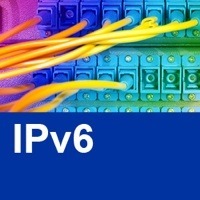 If you are interested in DNSSEC and/or “DNS security” in general, there is going to be a great amount of activity happening in a number of different working group sessions at IETF 90 next week in Toronto.
If you are interested in DNSSEC and/or “DNS security” in general, there is going to be a great amount of activity happening in a number of different working group sessions at IETF 90 next week in Toronto.
I wrote about all of this in a post on the ITM blog, “Rough Guide to IETF 90: DNSSEC, DANE and DNS Security“, a part of the Rough Guide to IETF 90 series of posts.
You can read the full details (and find links to all the drafts), but here’s a quick summary:
- The DNSOP (DNS Operations) Working Group will be talking about DNSSEC key and signing policies and requirements for DNSSEC validation in DNS resolvers. The group will also talk about the “DNSSEC roadblock avoidance” draft before getting into what should be a lively discussion about how we better optimize the distribution of data in the root zone of DNS.
- The DANE Working Group will discuss a number of ways the DANE protocol can be used with applications such as OpenPGP, SMIME, SMTP and more. There will also be a discussion of turning the “DANE Operational Guidance” draft into an actual update/replacement for RFC 6698 that defines DANE. It should be very interesting session!
- The SIPCORE Working Group will discuss a draft about using DANE and DNSSEC for SIP-based Voice-over-IP (VoIP).
- The TRANS Working Group will explore whether or not there is a role for Certificate Transparency (CT) to play with DNSSEC and/or DANE.
- The HOMENET Working Group will discuss two different drafts relating to DNSSEC and customer-premise equipment (CPE) such as home wifi routers.
And a couple of other working groups may have DNSSEC-related discussions as well. All in all it will be a very busy week at IETF 90!
Again, more details and links to all of the associated drafts can be found in the Rough Guide to IETF 90 article about DNSSEC.
If you aren’t able to actually be in Toronto, you still can participate remotely – see the IETF 90 Remote Participation page for more information about how you can join in to the discussions.
If you are in Toronto, please do feel free to say hello and introduce yourself. You can pretty much expect to find me in all of these various DNSSEC-related sessions (and many of the IPv6-related sessions, too).


